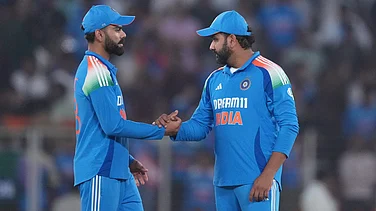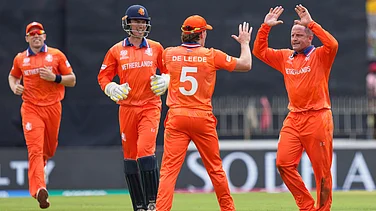
Many national sports federations and state sports associations, including those that administer cricket, have often invited politicians and bureaucrats to head them but have always resented any attempts by governments to exercise direct control. Historically, national sports federations have even been opposed to the guidelines issued by the ministry of sports. Yet, when you consider that most of the sports associations running Olympic sports at the state level are pretty impoverished, you can easily figure out that the real targets are the state cricket associations, flush with funds and opportunities to wield power. Kalmadi, a Congress MP, admits as much. "It is the cricket associations that are in the line of fire now, but we do not want a situation where other sports bodies become open to being taken over by state governments," he says.
Others who oppose governmental interference in sports associations will have us believe that things have come to such a pass only because of a few individuals nursing dreams of usurping power. "The bills have been passed due to personal whims of some individuals and, yes, there are political motives attached to it," says BCCI president Ranbir Singh Mahendra.
He suggests that individuals close to state administrations want to wrest control of cricket associations. The finger points at those with more than a lay interest in the television industry.Former secretary of the Rajasthan Cricket Association Kishore Rungta, who voiced the first protest against such a move by any state government, says those with commercial interests want to get into the BCCI so that their businesses can flourish.
BCCI vice-president Rajeev Shukla says the entry of politicians with vested interests, and without any love for the game, into state associations would destroy the game. "The move to regulate all sports bodies is an eyewash as they are already state-funded and is just an attempt by the government to facilitate the entry of some individuals with vested interests into cricket administration," he says.
Himachal Cricket Association president Anurag Thakur, son of former CM Prem Kumar Dhumal, says he has had to face political ill-will after hpca's annual budget rose from Rs 20 lakh in 2000 to Rs 12 crore this year. Local politicians could not be faulted for wondering how a number of people paid to watch the touring Pakistan's game against India-A at Dharamshala this March, while they themselves have to spend a small fortune to gather a crowd for their own political rallies.
So, what has lured the state governments to pass regulatory laws for sports associations? There is big money and power in cricket. In 2004-05, for instance, the BCCI gave away Rs 32.2 crore to its state associations as their share from the TV revenues that it earned.
Governments don't agree, of course. Himachal sports minister Ram Lal Thakur says they were forced to enact the law to ensure sports bodies function in a transparent manner, besides safeguarding the interests of sportspersons. "There have been several instances where disputes have arisen and parallel bodies floated," he told the Himachal Pradesh assembly. "The position was worse in case of the cricket association as its constitution was changed arbitrarily.... The government appreciates the good work in building a stadium at Dharamshala but that did not mean that the association could be allowed to get away with anything."
Surely, there must be better, more acceptable ways for the state to keep an eye on these associations so that the funds are put to proper use. Time will tell if the IOA threat will work, especially after its persuasive tactics failed to move the state governments. Or will the judiciary have to decide on whether the state can regulate the functioning of state sports bodies?
For starters, perhaps the time has come for BCCI to issue a model constitution and ensure that all its state units adopt that. Clearly, there is a lesson for the state sports associations across the country and national sports federations as well. They really need to clean up the proverbial Augean stables if they are not to attract the attention of the hawks in government.
Indeed, the final episode of this soap is still some distance away.






















